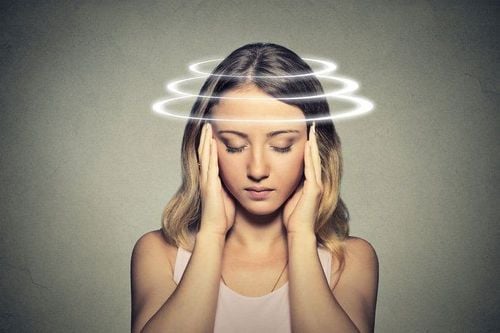This is an automatically translated article.
This article is professionally consulted by Master, Doctor Bui Ngoc Phuong Hoa - General Internal Medicine - Department of Medical Examination & Internal Medicine - Vinmec Danang International Hospital.Chronic insomnia, also known as chronic insomnia, can cause conditions such as anxiety, depression, heart disease, high blood pressure, and a risk of stroke.
1. What is chronic insomnia?
Chronic insomnia is difficulty falling asleep and staying asleep at night, or waking early and not being able to fall back to sleep for at least 1 month. Insomnia less than 1 month is called acute (short-term) insomnia, while long-term insomnia, more than 1 month is chronic insomnia.2. Symptoms of Chronic Insomnia
People with chronic insomnia often have the following symptoms:Toss and turn, difficulty falling asleep. Or wake up but have a hard time going back to sleep. Usually wake up early. Feeling tired, uncomfortable when waking up. There is no feeling of rest or recovery after waking up. Feeling lethargic, sluggish, not alert, and sleepy during the day. Feeling irritable, anxious or depressed. People with chronic insomnia often find it difficult to concentrate, pay attention and remember. Or stress and headaches... Mood is restless, easily angered. Finding it difficult to make informed decisions. Easily influenced by others. There may be hallucinations. Depending on the severity and condition of the disease, the patient will have severe or mild symptoms.

3. Causes of Chronic Insomnia
Here are some causes of chronic insomnia :Due to reduced quality of life. Due to diseases of bones and joints: Osteoarthritis pain, spondylosis, osteoarthritis, osteoporosis, causing pain at night, hindering sleep. Due to cardiovascular diseases: High blood pressure, myocardial ischemia (coronary insufficiency), heart failure. These diseases cause pain in the chest, shortness of breath, long-term leading to chronic insomnia. Due to respiratory diseases: Bronchiectasis, bronchial asthma, causing coughing, difficulty breathing at night, affecting sleep quality. Due to digestive diseases: Stomach pain, chronic colitis, digestive disorders, causing belching, heartburn, indigestion, gastric reflux, seriously affecting sleep. Due to urinary diseases: Urinary stones (kidney stones, bladder stones..), prostate fibroids, diabetes, causing frequent urination at night, hindering sleep. Due to mental illness: People with mental illness often have more chronic insomnia and also have more difficulty falling back to sleep. Due to the environment: The sleeping space is narrow, crowded, noisy, not clean and well ventilated. Due to irregular eating: Eating too full, drinking too much water before going to bed, or drinking alcohol, beer, using stimulants such as coffee, tea, cigarettes ... also affect sleep. . Due to physiological disorders: Depression, anger, sadness, jealousy, worry too much (life, work, finance, health ..), stress for a long time, schizophrenia Due to hormonal changes: The increase and decrease of hormones during menstruation or perimenopause - menopause is also considered as one of the causes of chronic insomnia.
4. How dangerous is chronic insomnia?
Chronic insomnia also causes cell degeneration, cell toxicity.When sleep loss is prolonged and causes cardiovascular diseases, high blood pressure, it easily leads to the risk of stroke.
In addition, people with chronic insomnia are also very susceptible to being overweight and obese, leading to diabetes. On the contrary, if thin people suffer from prolonged sleep loss, it increases cholesterol and increases the risk of stroke.

5. How to prevent chronic insomnia
Here are some tips to prevent chronic insomnia: Do not be too active before going to bed because a lot of activity increases energy, secretes a lot of cholesterol, and makes it difficult to fall asleep. Avoid letting stress, depression, anxiety affect sleep. The bedroom should always be airy and quiet. Avoid using stimulants at night, before bedtime such as coffee, alcohol, beer. Build and maintain a reasonable diet, exercise and work regimen. Do not use sleeping pills, although they help you fall asleep, they will make your body tired when you wake up. In addition, long-term use of sleeping pills also has side effects, causing the sleep-wake cycle to be disrupted.When dependent on drugs, patients can change from acute insomnia to chronic insomnia, pathological insomnia and increase the risk of stroke. Side effects of sleeping pills are dizziness, headache, irritability, liver and kidney damage, long-term use is easy to encounter many unpredictable complications.
When suffering from insomnia, the patient needs to see a doctor soon for treatment in the first months, when symptoms of insomnia begin. Early treatment will ensure safe treatment results and avoid long-term consequences.
Please dial HOTLINE for more information or register for an appointment HERE. Download MyVinmec app to make appointments faster and to manage your bookings easily.









![[Vinmec - Q&A with experts] Number 01: The topic of insomnia (Part 2)](/static/uploads/small_20190717_084124_104504_mat_ngu_max_1800x1800_jpg_c043f33d6b.jpg)




